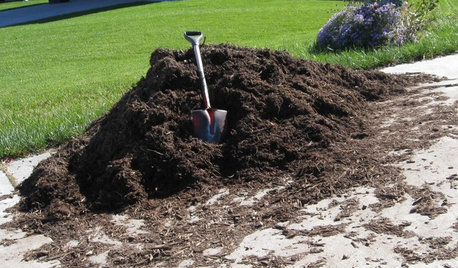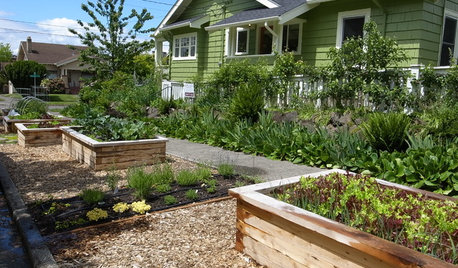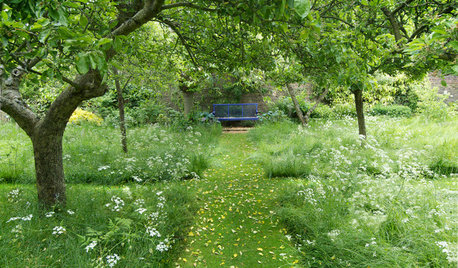Strategies for Converting to Organic Lawn Care?
leafy02
15 years ago
Related Stories

BEFORE AND AFTERSMore Room, Please: 5 Spectacularly Converted Garages
Design — and the desire for more space — turns humble garages into gracious living rooms
Full Story
KITCHEN DESIGN8 Kitchen Organizing Ideas for Messy Cooks
Not the clean-as-you-go type? Not to worry. These strategies will help keep your kitchen looking tidy no matter what your cooking style is
Full Story
GREAT HOME PROJECTSHow to Replace Your Lawn With a Garden
New project for a new year: Lose the turfgrass for energy savings, wildlife friendliness and lower maintenance
Full Story
FRONT YARD IDEASBefore and After: Front Lawn to Prairie Garden
How they did it: Homeowners create a plan, stick to it and keep the neighbors (and wildlife) in mind
Full Story
LANDSCAPE DESIGNGet Along With Less Lawn — Ideas to Save Water and Effort
Ditch the mower and lower your water bill while creating a feast for the eyes with diverse plantings and gathering places
Full Story
BEFORE AND AFTERSSee 6 Yards Transformed by Losing Their Lawns
Wondering whether a turf lawn is the best use of your outdoor space? These homeowners did, and they found creative alternatives
Full Story
LANDSCAPE DESIGNCalifornia Says Goodbye to the Sprawling Ornamental Lawn
New state rules will effectively limit turfgrass to 25 percent of the landscape in most new and renovated yards
Full Story
EARTH DAYThe Case for Losing the Traditional Lawn
Work less, help the environment and foster connections by just saying no to typical turf
Full Story
GROUND COVERSGive Your Lawn a Taste of the Wild
Consider the joys of an irregularly trimmed meadow lawn: It’s ecofriendly, visually interesting and still good for romping
Full Story
SAVING WATERHouzz Call: Are You Letting Go of Your Lawn?
Many facing a drought are swapping turf for less thirsty plantings. If you’re one of them, we’d like to hear about it
Full Story





billhill
dchall_san_antonio
Related Professionals
Rancho Palos Verdes Landscape Architects & Landscape Designers · Anderson Landscape Contractors · Wakefield Landscape Contractors · Crystal Landscape Contractors · Hilton Head Island Landscape Contractors · Lady Lake Landscape Contractors · Mission Bend Landscape Contractors · Natick Landscape Contractors · Seven Hills Landscape Contractors · Shaker Heights Landscape Contractors · Watertown Landscape Contractors · Webster Groves Landscape Contractors · Madison Fence Contractors · Saginaw Fence Contractors · Hermosa Beach Fence Contractorsleafy02Original Author
dchall_san_antonio
leafy02Original Author
dchall_san_antonio
leafy02Original Author
dchall_san_antonio
leafy02Original Author